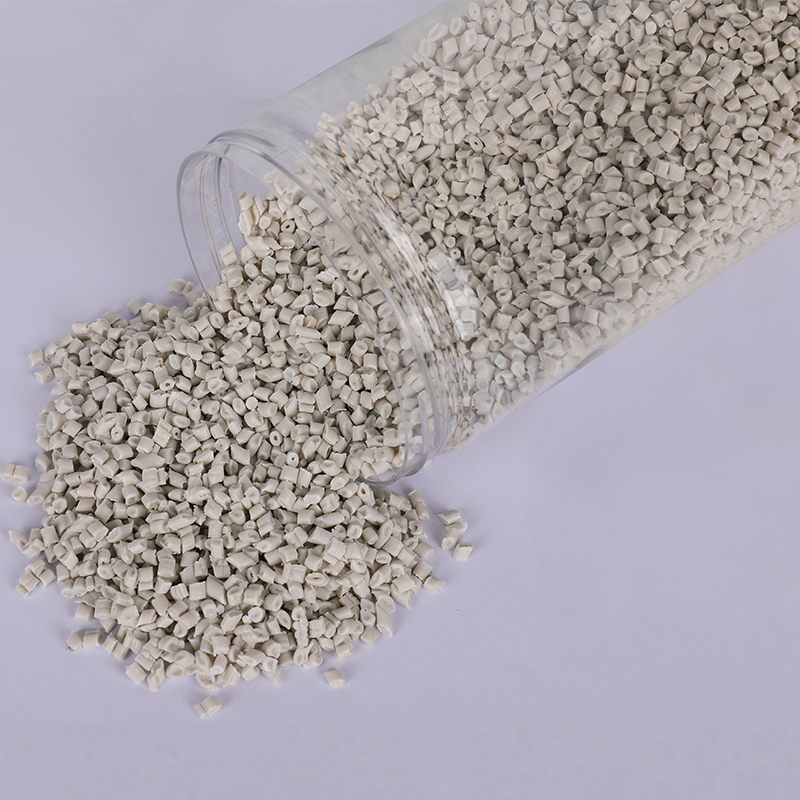Stay up to date with our recent products
Web Menu
Product Search
Exit Menu
Ensuring Quality: Tackling Contamination in RPP Recycling
Recycled polypropylene plastic (RPP) is gaining traction across various industries due to its versatility and durability. However, one of the critical challenges in the recycling process is contamination, which can significantly affect the quality of the final product. Understanding how contamination occurs and the steps that can be taken to minimize its impact is vital for manufacturers looking to embrace sustainable practices while maintaining high-performance standards.
Contamination during the recycling process typically occurs at multiple stages, beginning with the collection of used polypropylene products. These items can come from various sources, including packaging materials, automotive components, and textiles, each potentially introducing different contaminants. Common issues include residues from food packaging, dirt, and other plastics that are not suitable for recycling with polypropylene. When these contaminants are not adequately removed, they can affect the melting process and compromise the physical properties of the recycled material. For instance, if food residues are present, they can lead to degradation, reducing the strength and thermal stability of the resulting RPP. Additionally, mixing incompatible plastics can create weak spots in the material, further diminishing its performance in applications.
To mitigate these contamination issues, manufacturers can implement several measures throughout the recycling process. First and foremost is improving the sorting phase. Advanced sorting technologies, such as optical sorting and near-infrared (NIR) spectroscopy, can significantly enhance the accuracy of identifying and separating polypropylene from other materials. By utilizing these technologies, recyclers can ensure that only clean, uncontaminated polypropylene enters the recycling stream. Furthermore, education and awareness initiatives for consumers and businesses are essential. Providing clear guidelines on how to properly dispose of polypropylene products and the importance of cleaning items before recycling can help reduce contamination at the source.

Another critical aspect is the washing and cleaning of collected materials. Effective washing processes can remove residues and dirt, but it’s essential to select appropriate cleaning agents and methods that do not introduce new contaminants. Manufacturers can invest in advanced washing technologies that use less water and energy while maximizing the removal of contaminants. Additionally, integrating a quality control step after cleaning can help verify that the recycled polypropylene meets the necessary standards before it is melted down and reformed into pellets.
In terms of maintaining quality, manufacturers must also consider the impact of contamination on the end-use applications of Recycled polypropylene plastic. For instance, in industries such as automotive and medical devices, the integrity of the material is paramount. Implementing rigorous testing protocols, including mechanical and thermal property assessments, can help ensure that the recycled product meets performance standards. By focusing on quality control throughout the recycling process, manufacturers can confidently use RPP in applications that demand high performance and reliability.
While contamination in the recycling process poses a significant challenge to the quality of RPP, there are effective strategies that manufacturers can adopt to minimize these issues. By improving sorting technologies, enhancing cleaning processes, and implementing strict quality control measures, it is possible to produce high-quality recycled polypropylene that meets the demands of various industries. Embracing these practices not only supports sustainability efforts but also demonstrates a commitment to delivering reliable products, further paving the way for a greener future.
As China PCR Recycled Plastic Granules Factory, We always adhere to the experience and philosophy of "keeping up with the times, constantly innovating, developing efficiently, and cooperating for mutual benefit"

Address: No.11, Wangzhuang Section, Provincial Road 01, Daqiao New Area, Economic Development Zone, Haiyan County, Jiaxing City, Zhejiang Province, China
Phone: +86-15988381895
Fax: +86-0573-86868101
E-mail: [email protected]
SUNRISE GROUP(Overseas Exclusive Agent)
www.sunrisechemical.com
2024 ICIS Global Chemical Distributor Top 8
Export Sales Manager:Helen Zhang
Mob/Whatsapp: +86 19883063465
Email: [email protected]
Copyright © Jiaxing Anyiju Plastic Industry Co., Ltd. All Rights Reserved

 简体中文
简体中文 English
English







